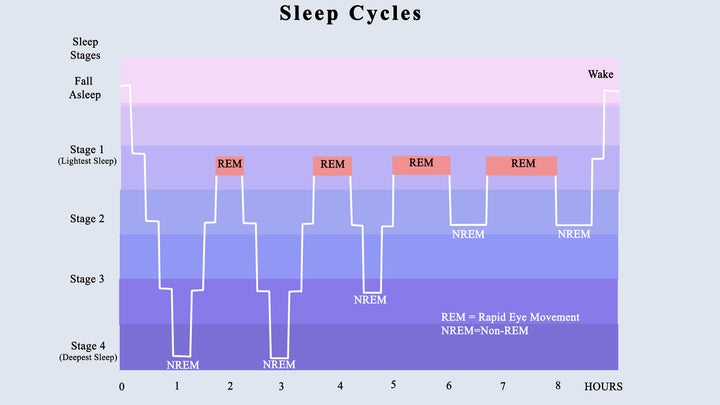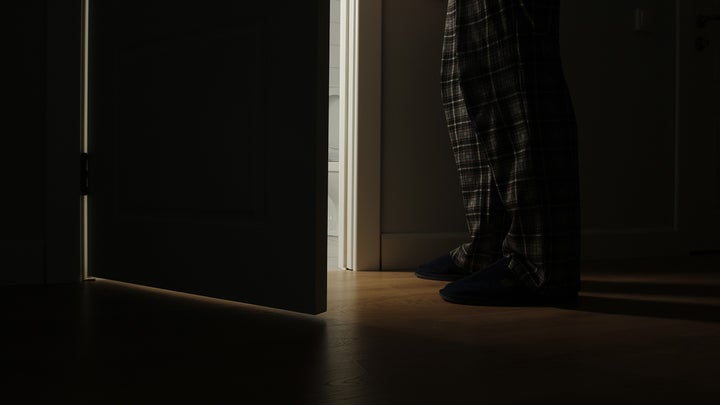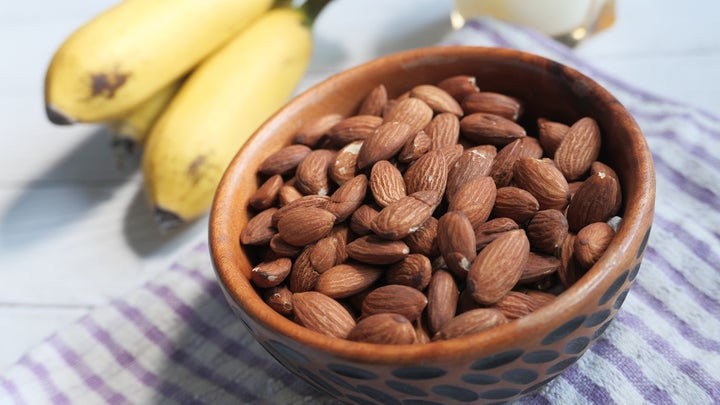Good sleep may often be overlooked, but it is an important factor when it comes to keeping your prostate healthy. Along with other healthy habits such as exercise, optimal nutrition, and everyday stress management, a good night’s sleep may help you retain your prostate health as well as promote long-term wellness in a variety of other ways.
Deep sleep is a specific stage of the sleep cycle that helps to support many of the body’s functions, as well as the health of the prostate. In fact, the circadian rhythm, which regulates the patterns of our wake and sleep cycles, plays an integral part in governing hormonal balance and has a direct effect on prostate health and functioning.
What Is Deep Sleep?
There are five stages of sleep that we cycle in and out of throughout the night. In a healthy sleep period, we will visit and revisit the different stages of the cycle at different periods of sleep.
The light sleep cycle (stage 1) accounts for a small percentage of total sleep time and is a period where we are transitioning from wakefulness to sleep. As we enter the next phase of the sleep cycle (stage 2), the body relaxes further, and the brain enters the realm of theta waves mixed with long delta waves. This sleep stage plays an important role in memory consolidation and other important brain functions.
As we enter deep sleep (stage 3), a phase of low-frequency brain waves, the heart rate slows, and the body performs many restorative functions that help maintain prostate health. These deep sleep activities include the daily repair of tissues, immune system maintenance, and the release of certain hormones. This is an incredibly important stage of sleep where the body is also able to focus on the everyday growth and regeneration of tissues, such as cells, organs, muscles, & bones.

As we move into REM sleep (stage 4), our brain becomes much more active. Also known as the dream state, it is the phase of the sleep cycle that helps you process emotions and memories. The end of the cycle concludes with the waking state, and how you feel in this state is dependent on the quality of all of the other cycles. Properly moving through these cycles allows you to awaken refreshed and ready to go.
How Does Deep Sleep Affect the Prostate?
As you can see, deep sleep is incredibly important in maintaining overall health. Although it may not seem like there is much of a connection with the prostate, urological health and the maintenance of healthy hormone levels are reliant on healthy sleep cycles. Quality sleep is correlated with optimal prostate health, which adequate melatonin levels and sleep duration contribute to.
As part of normal aging, we naturally tend to spend less time in the deep sleep cycle. This can be due to a variety of factors, including common age-related changes in sex hormones that can make it more difficult to get quality sleep. Other hormone changes, such as cortisol levels, can affect prostate health, so it is important to manage everyday stress levels and promote high-quality sleep. Prostate function is also linked to immune system functioning, and there are added burdens that interrupted sleep can put on immune system resilience.
Most men experience common age-related changes to the prostate, and as a result of the prostate’s anatomical position, these changes can interfere with a normal nighttime urination schedule. Getting up to go to the bathroom throughout the night clearly disrupts your deep sleep cycles.

Certain health conditions can interfere with restful sleep, which in turn can contribute to occasional oxidative stress in the urinary tract, bladder, and prostate. Lifestyle changes that promote deeper sleep can help, as a relevant study found that men using sleep-assist devices get more restful sleep. This can help promote prostate health and reduce common age-related urinary symptoms.
How to Promote Deep Sleep for Prostate Health
Knowing how important a good night’s sleep is can be good motivation to develop a sleep routine that results in being refreshed and well-rested. Having a consistent routine helps send the body signals to start shifting into a mode of relaxation.
There are many ways to promote deep sleep, and it is important to find what works best for you. Here are a few suggestions to help you establish a pattern of healthy sleep cycles.
♦ Have a consistent sleep routine/sleep schedule. Waking and going to bed at the same time each day helps to keep your circadian rhythms consistent.
♦ Exercise or participate in other healthy movement activities. Even just taking a walk in the evening may benefit your quality of sleep. Exercise is also beneficial for promoting prostate health.
♦ Avoid caffeine late in the day. Although you may not notice caffeine consumption affecting your sleep, it has been linked to less optimal sleep quality.
♦ Avoid or reduce alcohol consumption. Alcohol can change the amount of time you spend in different stages of sleep and may significantly impact the quality of your sleep.
♦ Take short naps or avoid them altogether. A short power nap early in the day can help promote alertness and productivity, but longer naps may interfere with nighttime sleep cycles.
♦ Reduce blue light exposure before bed. Blue light emitted from digital devices such as computers and smartphones may affect the secretion of melatonin and interfere with your wake and sleep cycles.
♦ Avoid heavy meals right before bedtime. A big meal or rich foods may make it harder for your body and mind to fall asleep. Stick to small snacks that may promote sleep quality, such as cherries, bananas, almonds, and walnuts.
♦ Eat nutritious foods and take your vitamins, as certain nutrients can promote better sleep.

A healthy sleep routine and proper nutrition are essential to prostate health, but sometimes it can be hard to get all of the beneficial nutrients you need from the food you eat. It is a great strategy to focus on incorporating recipes that benefit the health of your prostate as a part of an overall plan to maintain prostate health.
For added benefits to help complement your diet and lifestyle, ProstateMD® provides specific ingredients selected for their influence on long-term prostate health.
♦ Pumpkin Seed Oil: Pumpkin seeds are filled with important vitamins and minerals that support urinary and prostate health.
♦ Lycopene: This carotenoid helps to reduce typical oxidative stress and is fundamental to prostate health and maintaining overall health throughout the body.
♦ Lutein: Found in many vegetables, especially leafy greens, lutein is a carotenoid that helps reduce occasional oxidative stress, and its role in keeping the bladder and prostate healthy is now well recognized.
♦ Stinging Nettle Leaf: The nettle plant has a nutritious combination of vitamins, minerals, fatty acids, and polyphenols, which support healthy hormone levels and prostate health.
♦ Sunflower Seed Lecithin: Often used as an emulsifier, sunflower lecithin contributes enzymatic support for prostate cell health.
♦ Saw Palmetto Berry: This potent berry has an array of beneficial compounds that help support prostate health, promote healthy bladder emptying, and aid in maintaining normal urination frequency.
Final Thoughts
Integrating a healthy sleep routine and other important lifestyle changes can help promote long-term prostate health. Promoting deep sleep can help maintain overall vitality, as well as help you to stay resilient to everyday stress. Keeping your prostate healthy can even help encourage more time in the deep sleep phase, which is needed to maintain other necessary functions throughout the body.
As a board-certified urologist, I know how important a healthy lifestyle and sleep quality are to long-term prostate health. A comprehensive prostate supplement such as ProstateMD® can give extra support to your prostate and urinary health. Combined with a good night’s sleep and a healthy lifestyle, this formula can help you stay in control of your health in ways that have long-lasting benefits.
Dr. Daniel Brison

Dr. Daniel Brison is a board certified urologist who completed medical school at the State University of New York, and residency at the prestigious Endourology fellowship program at UCLA.






